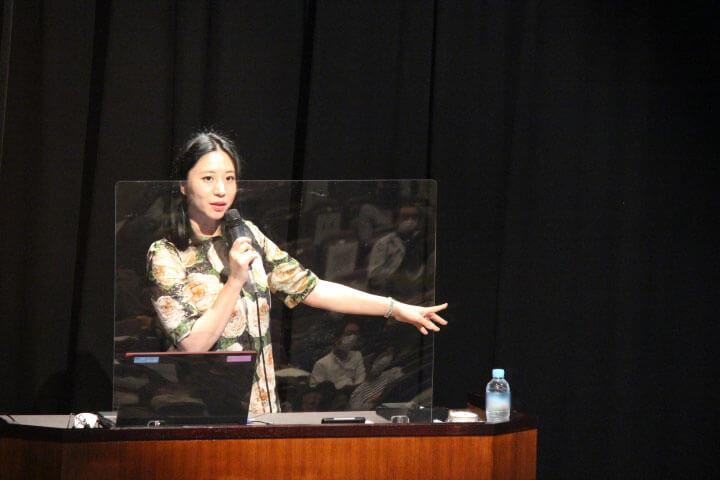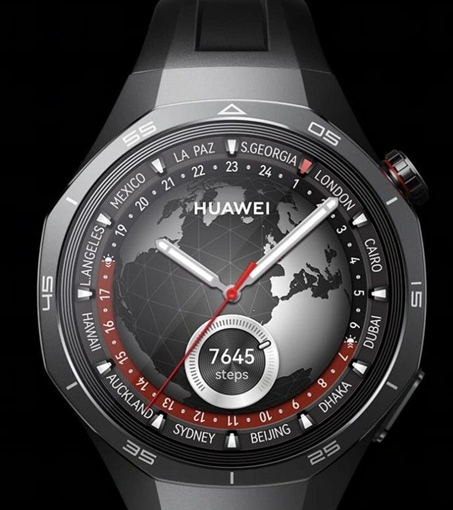Challenges of the Kishida Administration as Seen from Responses to Climate Change Issues and Economic Security - Strategy toward the United States and China that the Kishida Administration Should Take (Ruri Miura's Column - Vol. 1)
- 1101
- 98
Challenges of the Kishida Administration as Seen from Responses to Climate Change Issues and Economic Security - Strategy toward the United States and China that the Kishida Administration Should Take (Ruri Miura's Column - Vol. 1)
- By huaweicomputers
- 14/02/2023
It has already been two months since the Kishida government was established. Prime Minister Kishida's first job after the House of Representatives election was to participate in COP26 (the 26th Conference of the Parties to the United Nations Framework Convention on Climate Change) held in Glasgow, England. The international pledge made about a year ago by the predecessor Kan administration, the realization of carbon neutrality by 2050, depends on the measures taken in the next few years, and the Kishida administration will take full responsibility. .
In Japan, the awareness of environmental policy has not yet increased sufficiently. , has gone beyond the context of "global environmental protection". The Kan administration made a carbon neutral pledge before the results of the US presidential election came out. President Trump would have continued to withdraw from the Paris Agreement, and the federal government would have been in a position not to commit to climate change issues. It can be said that the significance of making an international pledge by oneself is significant.
When it comes to climate change issues, it is often reported that there is conflict between developed and developing countries. did In September 2020, China announced its 2060 carbon neutral goal, and at COP26, through a joint declaration with the United States, said it would strengthen US-China cooperation on climate change countermeasures over the next 10 years.
Since the Paris Agreement, not only developed countries but also developing countries are involved, and the system of setting goals and competing with each other is functioning. The relationship between the United States and China has become extremely severe, but the issue of climate change has attracted attention as an exceptional area in which the two countries can cooperate in the era of confrontation between the United States and China.
On the other hand, the point of conflict between China and countries that are actively trying to tackle the climate change problem was what to do with coal-fired power. There is an international consensus that the dependence on coal-fired power should be reduced, but there is a large difference of opinion as to when and at what pace it should be reduced or abolished. For example, Japan is still dependent on coal-fired power generation with technology to reduce carbon dioxide emissions, partly because of the lingering effects of the nuclear accident. This is the situation we are facing.
It is a well-known fact that even the EU, which advocates carbon neutrality, is currently heavily dependent on coal-fired power in Germany. But you can't reduce your dependence without setting goals. Above all, it is expected that the countries that are the first to break away from coal dependence will introduce disadvantageous regulations to countries that have not.
So that we can learn a lesson from this, the early realization of carbon neutrality is the core of each country's industrial policy and the heart of international economic competition. In fact, according to the outline of the new environmental standards announced by the International Financial Reporting Standards (IFRS) Foundation, companies must not only emit direct emissions from their own production activities, but also indirectly emit emissions through the use of electricity that is not carbon-neutral. emissions, and even the emissions of companies in their supply chains. If that happens, companies that produce electricity in Japan that have not yet made their electricity carbon-neutral have already lost their international competitiveness, and there is even the possibility that they will be shut out of international markets and transactions. The Kishida administration should have a firm sense of urgency about this issue, and should place top priority on promoting carbon neutrality, especially electricity.
Then, how will US-China relations other than the climate change issue develop, and what kind of impact will it have on Japan? The key word here is "economic security".

Economic security is a relatively new word, but I think it would be better if you could understand it as something not so different from energy security or food security, but with a broader meaning. .
What kind of policy will the Japanese government take by covering the word "security" with the area that is originally difficult to be regarded as a security issue and is vital to maintaining the people's lives? Well, it's a way to define "national policy". For example, Japan depends on imports from overseas for most of its resources and energy, and cannot survive if imports stop or prices rise sharply. It is a method of increasing it or subsidizing it to boost domestic production.
Regarding economic security, the Liberal Democratic Party has previously proposed that an economic security strategy should be formulated. Looking at the contents, it lists problems that have been said to be necessary but have not been tackled, so it is not so new. Rather, two things are important. The first is to reconsider individual issues with the concept of “economic security,” and to work on them with a significantly higher priority. It is to be conscious of your position and act proactively.
The Kishida administration is currently submitting an economic security bill to the Diet. layout, installation of submarine cable networks, etc. In the future, the government may take measures to prevent information leaks through people who have strong ties with foreign governments, such as the Chinese government, and measures to keep patents private are also being considered. Foreign products used in core infrastructure such as finance, transportation, and power grids may also be subject to pre-screening to determine whether they pose security threats, such as information leaks or manipulation by outside parties.
However, after proceeding with such efforts, the future issue is that there is a great deal of uncertainty as to what exactly is required for economic security. This is because economic security efforts that are conscious of China cannot be decided by Japan alone, and they cannot be completed. While keeping a close eye on the movements of the United States, we must say exactly what we should say as an ally and push back where we should push back, such as when we are asked to take measures that are not necessary but would cause too much damage to the economy. If we just get caught up in the tide of the US-China confrontation, we will be at the mercy of our country without guaranteeing our security, and we will end up with our economic strength being eroded. The new government is now facing enormous challenges. In the next installment, we will look back on the origins of the conflict between the United States and China in order to understand such trends in the United States.
⇒If you want to read more about Ruri Miura's column "The Kishida administration's strategy against the US and China", click here.
⇒Top
Ruri Miura
International political scientist, representative of think tank Yamaneko Research Institute Co., Ltd.
Born in 1980 in Kanagawa Prefecture. Specializes in international political theory and comparative politics, including research on the impact of domestic politics on foreign policy. After graduating from the Faculty of Agriculture, the University of Tokyo, completed the Graduate School of Public Policy and the Graduate School of Law and Politics. PhD (law). After working as a lecturer at the University of Tokyo Policy Alternatives Research Institute, he assumed his current position in 2019. While active in various media, including television, he also does a lot of writing and speech activities. His recent publications include "The Division of Japan: About the Future of Our Democracy" (Bunshun Shinsho), "War and Peace in the 21st Century: Why Is Conscription Necessary Again?" The Power to Choose” (co-authored by Toru Hashimoto/Bunshun Shinsho) and “Civilian War: When Democracy Becomes Aggressive” (Iwanami Shoten).
*The content of this article is the opinion of an independent author who has no direct relationship with our company. * Please note that the information posted may differ from the latest products, laws, tax systems, etc.















